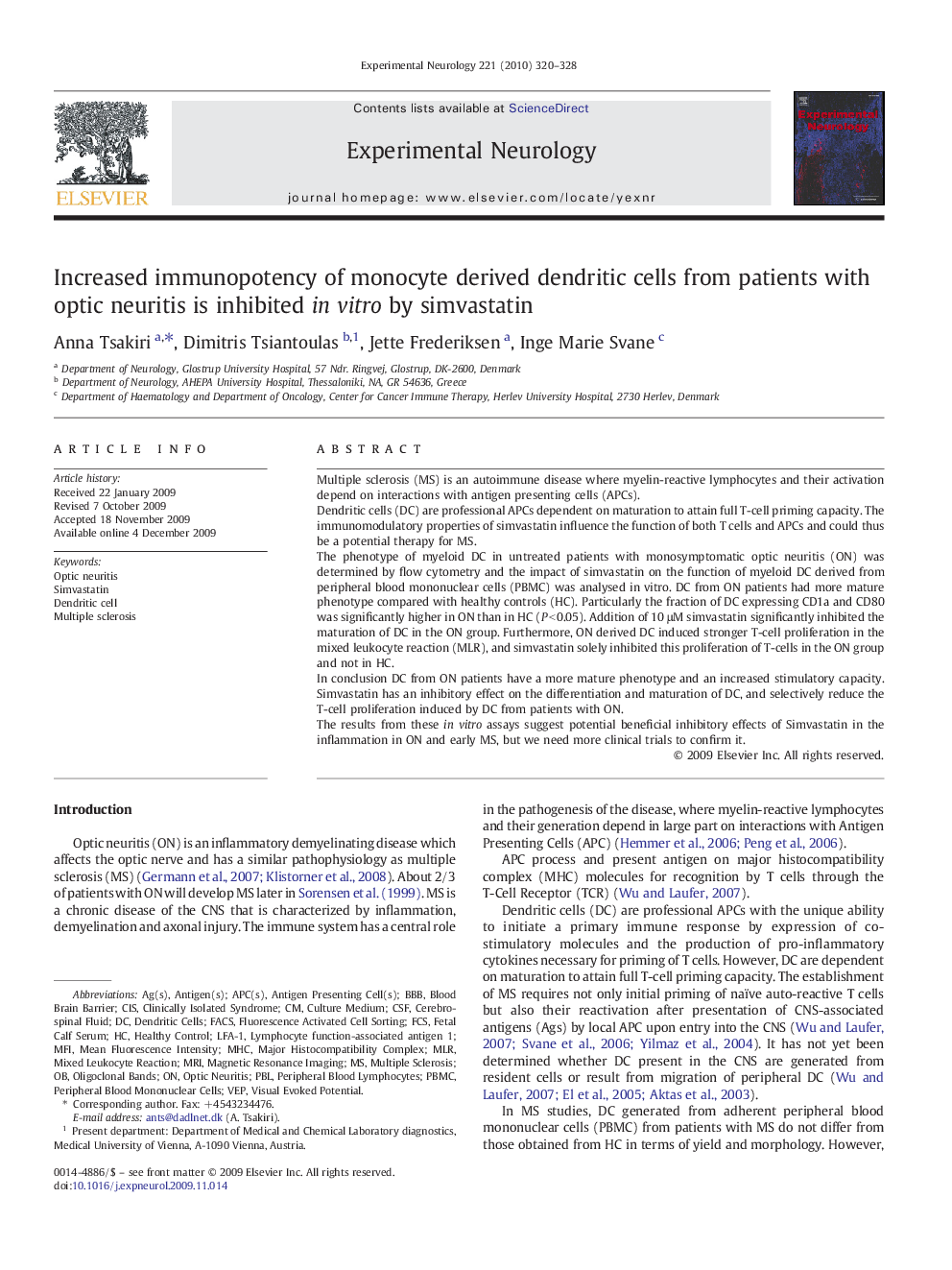| Article ID | Journal | Published Year | Pages | File Type |
|---|---|---|---|---|
| 3056178 | Experimental Neurology | 2010 | 9 Pages |
Multiple sclerosis (MS) is an autoimmune disease where myelin-reactive lymphocytes and their activation depend on interactions with antigen presenting cells (APCs).Dendritic cells (DC) are professional APCs dependent on maturation to attain full T-cell priming capacity. The immunomodulatory properties of simvastatin influence the function of both T cells and APCs and could thus be a potential therapy for MS.The phenotype of myeloid DC in untreated patients with monosymptomatic optic neuritis (ON) was determined by flow cytometry and the impact of simvastatin on the function of myeloid DC derived from peripheral blood mononuclear cells (PBMC) was analysed in vitro. DC from ON patients had more mature phenotype compared with healthy controls (HC). Particularly the fraction of DC expressing CD1a and CD80 was significantly higher in ON than in HC (P < 0.05). Addition of 10 μΜ simvastatin significantly inhibited the maturation of DC in the ON group. Furthermore, ON derived DC induced stronger T-cell proliferation in the mixed leukocyte reaction (MLR), and simvastatin solely inhibited this proliferation of T-cells in the ON group and not in HC.In conclusion DC from ON patients have a more mature phenotype and an increased stimulatory capacity. Simvastatin has an inhibitory effect on the differentiation and maturation of DC, and selectively reduce the T-cell proliferation induced by DC from patients with ON.The results from these in vitro assays suggest potential beneficial inhibitory effects of Simvastatin in the inflammation in ON and early MS, but we need more clinical trials to confirm it.
